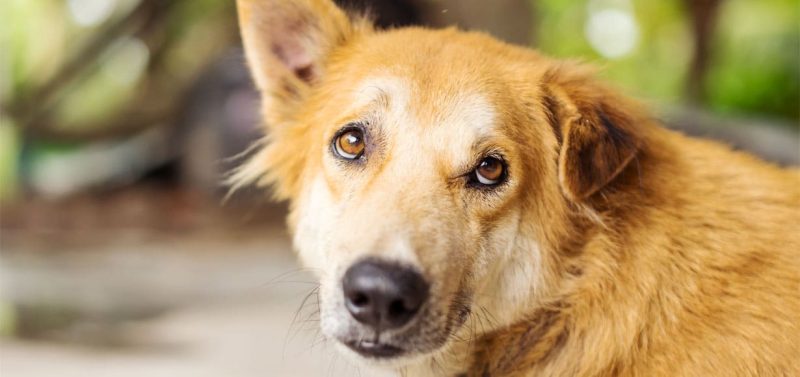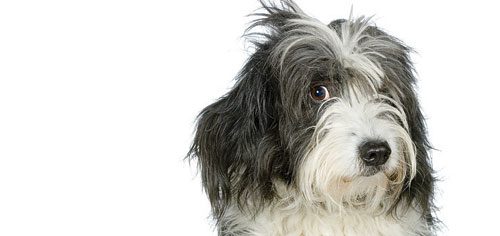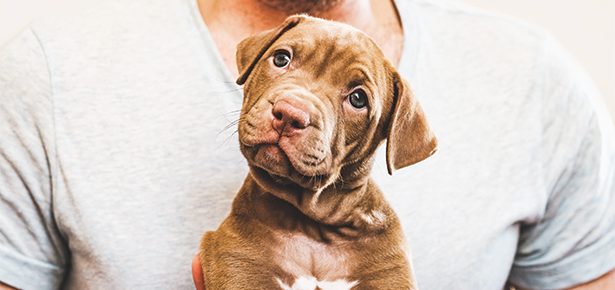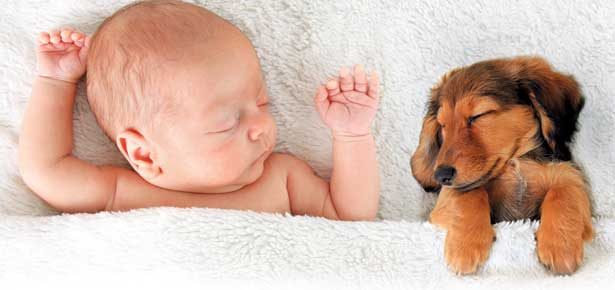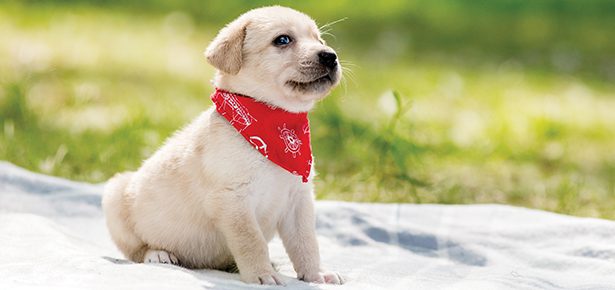
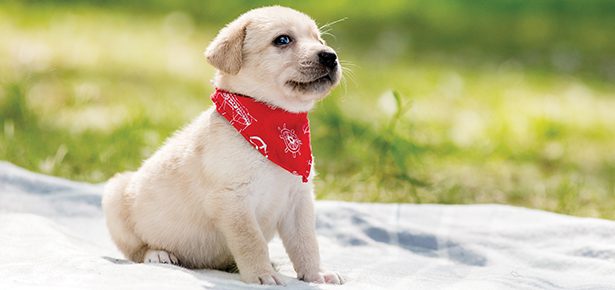
Why Puppies and Dog Parks Don’t Mix
Traumatic experience at a dog park could influence your puppy poorly for years to come
You have a new puppy—congratulations! There are so many things you need to do. You need to feed him healthy meals and treats. You need to get him proper veterinary care. You need to socialize him. You need lots of patience—and paper towels. There are lots of things a new puppy needs to grow up into a healthy, confident adult dog. A visit to the dog park is NOT one of them.
What’s that? You thought a dog park would be a great way to introduce your dog to a bunch of other dogs so he learns to make friends? This is a common misconception. The problem with dog parks is your puppy could be imprinted with the idea that other dogs are not so friendly. In fact, an early, traumatic experience at a dog park could influence your puppy poorly for years to come.
Puppies experience a critical socialization period from birth until about 12 to 16 weeks of age. During this time, they learn about the world around them and take those lessons into adulthood. Once you get your puppy home, the clock is ticking. You need to introduce him to many different kinds of people, environments, sounds, animals and more—and each experience needs to be a positive one, so your puppy associates the experience with good things. For example, the first time he hears thunder, treats should rain from the sky while you clap and cheer, “Yay! Thunder is awesome!” When he meets people of different ethnicities and ages, he should get treats so he learns that people are friendly and not scary. It is of paramount importance that you carefully control your puppy’s interactions to ensure happy experiences, thereby creating a foundation of trust and confidence.
At a dog park, there is very little you can control. While many dog park patrons are responsible pet parents, it only takes a handful of insensitive people who don’t follow the rules to make a trip to the park a miserable experience for your impressionable puppy. Some will be glued to their cell phones, oblivious to the fact that their dogs are causing trouble (or even crazier, that their own dog is the victim of a canine bully!). Others will be flirting or chatting with other people, again, clueless as to what their dogs are doing, whether it’s over-rambunctious behaviour, refusing to leave another dog alone, unwanted “play” or worse. Some dogs who have aggression issues have no business being in a dog park at all, but their owners insist on bringing them anyway.
Don’t get me wrong, it’s crucial your puppy meet other dogs during his socialization period—you just want to manage which ones. He won’t have all his shots until the period is over, but you don’t want to wait. It’s easy to think the best place to find other dogs is at a dog park. But if your puppy is rushed by a group of dogs, this can be scary. If a dog starts bullying him, this can be frightening. If he learns that it’s fun to bully other dogs, this is also a problem. Instead of hoping responsible people and appropriate dogs show up at your park outing, stack the deck in your favor. Arrange for your puppy to meet safe, friendly dogs at your home or a friend’s house. You’ll be matchmaking for a positive playdate! You can also attend a puppy kindergarten class, which should have supervised socialization opportunities under the guidance of an experienced instructor.
If you take the time to properly socialize your puppy during this critical period, he is more likely to have better coping skills if you decide to try a dog park visit later. Wait until he reaches adolescence, about six months of age. Look for a dog park managed and attended by responsible pet parents, who monitor their dogs and follow the rules for the benefit of everyone. Your teenage dog could very well have fun, safe visits, but for puppies? No dog parking!
*Teoti Anderson, CPDT-KA, KPA-CTP, is a professional dog trainer and author of The Dog Behavior Problem Solver, Ultimate Guide to Dog Training, Puppy Care and Training, and more. She hosts the Get Pawsitive Results radio show on Pet Life Radio and educates pet parents and other trainers on canine behaviour through popular webinars and workshops.
Join the newsletter and never miss out on dog content again!
"*" indicates required fields
By clicking the arrow, you agree to our web Terms of Use and Privacy & Cookie Policy. Easy unsubscribe links are provided in every email.
